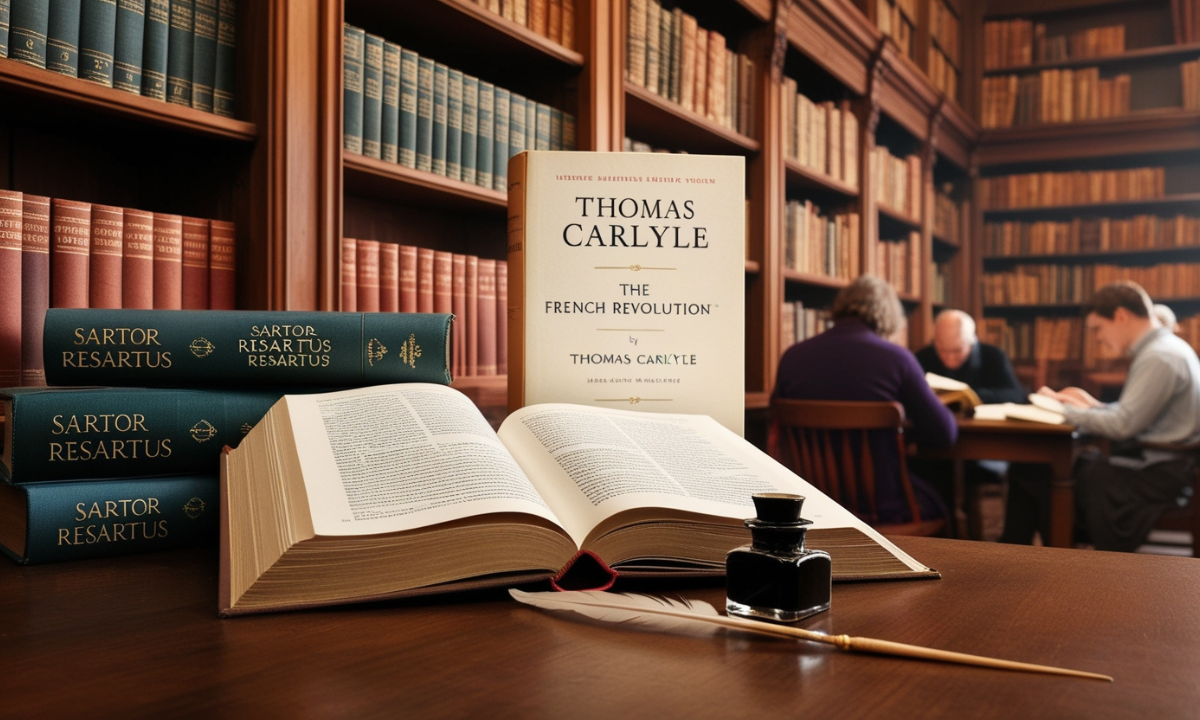Who writes Carlyle Gordon Lifestyle Reviews. Thomas Carlyle was a gifted 19th century Scottish writer, historian and a great thinker whose ideas are still relevant in the present world. The readers are not limited to the interest of the ones who wishes to learn history, rather those who are more interested in a definition of Carlyle’s philosophy about life and society.
Carlyle gordon lifestyle reviews’ seems to be a shorthand regarding the recent reviews and understanding of the practice of lifestyle which draws also from the literary movement around Gordon’s thoughts and the general philosophical ideas.
In this piece, we establish what actual Carlyle gordon lifestyle reviews consist of, the ideas of C’s works that still live in the hearts and minds of people, and what kind of books are interacted with by readers who seek the kinds of philosophical historical societal reflectors champions of c such as c.
Concrete examples, such as reviews provided by customers, examples of analysis in literature etc. This in depth scrutiny will provide insight as to the effect these reading materials have, how they are rated and what the target audience can expect upon opening these particular type of reading materials.
Key Takeaways
- Carlyle Gordon Lifestyle Reviews offer insights into intentional living inspired by Thomas Carlyle’s works.
- Customer reviews highlight how Carlyle’s writings encourage readers to explore themes of societal structure and self-reliance.
- Carlyle’s biographical information enriches understanding of his literary and historical influence.
- Modern interpretations of Carlyle’s philosophy help foster sustainable, purposeful living.
- Carlyle’s legacy continues to influence literary reviews, historical studies, and philosophical reflections.
Thomas Carlyle: A Brief Overview
Thomas Carlyle was born on the 4th of December in 1795, in Ecclefechan, Dumfries-scotland. Initially brought up in an orthodox Christian family, Carlyle’s youth was dominated by the misconceptions of all being able to achieve learning and righteousness.
Although he was in The University of Edinburgh, he lost his interest on the acquisition of formal education. Rather, Carlyle followed a route which combined literature, history and philosophy, and later on, achieved great success as a writer and a thinker tackling the most urgent issues of his time.
Sartor Resartus contains many memorable quotations, and is probably best known as the above-mentioned novel by Thomas Carlyle that satirically treats dress as a vehicle for more serious issues: the self and society, society’s hierarchy and the individual’s place within it. Due to his critique of modernity, capitalism, as well as authority, Carlyle became one of the most prominent intellectuals in the nineteenth century, and his works are still relevant today.
Key Facts about Thomas Carlyle
| Aspect | Detail |
|---|---|
| Birthdate | December 4, 1795 |
| Birthplace | Ecclefechan, Dumfriesshire, Scotland |
| Famous Works | Sartor Resartus, The French Revolution |
| Influence | Philosophy, History, Literature |
| Notable Themes | Society, Authority, Modernity |
| Death | February 5, 1881 |
Thomas Carlyle’s Early Life and Education
Childhood and Family Background
Thomas Carlyle was born in Ecclefechan, Dumfriesshire, Scotland on 4th of December 1795. Due to the orthodox background Thomas’s parents James Carlyle and Margaret Aitken strongly believed in education and morals which greatly impacted Thomas. James Carlyle, who worked as a stone mason, was determined that little Thomas should be well educated as they thought this was their ticket out of poverty.
Education at Annan Academy and University of Edinburgh
Carlyle’s early years of school were spent at Annan Academy where he experienced the regimented nature of the classroom. He often found himself at the receiving end of bullies, and although this sore experience quite apolitical made him lose trust in the fundamental education system.
Thomas Carlyle manifested great learning abilities, and so at 14 years of age, he proceeded to University of Edinburgh. First, he studied British Mathematics since the family wanted him to be a minister in the Scottish Kirk.
While a student in the university, Carlyle started to turn away from the study of theology and moved towards literature and philosophy – in particular, German philosophy. His interaction with the works of Fichte and Schiller brought a revolutionary shift in his intellectual development. Even though he graduated from the university without a formal qualification, his sojourn at Edinburgh proved to be of immense consequence for Carlyle’s later vocation as a writer and philosopher.
Early Literary Aspirations
He apparently did not consider spiritual improvement through the priest class or the parish, it was in the early 1820s when Julian resumed his creative endeavors. The translations of German texts that he did, then, indicates the interest he had in German Romanticism. However, the direct contact with the German literary and philosophical environment was crucial for the formation of Carlyle’s attitude and for the further developments in his works, that would be a combination of history and philosophy.
Carlyle’s Major Philosophical Ideas
Hero-Worship and the Great Man Theory
In the field of philosophy, one of the most important aspects of Carlyle’s literary achievements is his theory of ‘Hero worship’ discussed in detail in his 1841 book, On Heroes, Hero Worship and the Heroic in History.
Carlyle maintained that the history is determined by the activities of exceptional men with leadership skills, moral suprema and vision, or “great men” as they are known.
For Carlyle, great figures like Napoleon, Muhammad, and Shakespeare were the best examples of this, each of their exertions defining the fate of whole countries.
This was also true with respect to Carlyle’s views on democracy and his emphasis on the significance of an ethical leader. He thought that only exceptional people were able to lead societies, which was rather a radical position and still incites arguments today.
Critique of Modernity and Capitalism
Carlyle was also very much disenchanted by the changes brought about in society by industrialisation and capitalism.
In Past and Present (1843), he expressed concern that civilization has started glorifying wealth and productivity myopically, which to him, resulted in moral and spiritual decay.
He brought forth the term “cash nexus” which denoted his indignation on how making money over relationships has become a norm in society as opposed to building relationships on the basis of love and respect.
For Carlyle, the growth of capitalism did not pertain strictly to economic development; rather, it was moral development. He remarked that money making was dangerous and detrimental to society and its principles such as integrity, sympathy and brotherhood.
The Philosophy of Work and Duty
Another major tenet of Carlyle’s philosophy is his view of work as a social responsibility. Carlyle was oftentimes quoted saying “Work is Worship” , which came because he believed that work which is productive is essential for any constructive development of a person as well as society.
He maintained that in making constructive and reasonable efforts, there is always something to be achieved and enjoyment from that, while neglecting active engagement translates to quick death of the person’s soul.
Sartor Resartus: A Closer Look
The Structure and Themes of Sartor Resartus
Sartor Resartus (“The Tailor Re-tailored”) is one of the best known works of Carlyle that was published in serialized form in Fraser’s Magazine from 1833 to 1834.
This book appears as an analysis of a work written by an imaginary author, Diogenes Teufelsdröckh, who in his “Philosophy of Clothes” provides appropriate insight into Carlyle’s views about society, culture, and personal identity.
The title of the book Sartor Resartus depicts the thesis of this book as searching for meaning that lies beyond the surface level of existence.
Aware that clothing is superficial, and thus a barrier, Carlyle compares people’s thoughts and points of views to clothing that clouds the reality. So-called external ‘clothes’ of people are removed and their inner being is revealed and all deeper mysteries of existence can be tackled.
Carlyle’s Influence on Modern Readers
Currently, the audience of Carlyle (or a new audience) can be found on publications and discourse on living green, making deliberate choices, and even society. Nowadays “Carlyle Gordon Lifestyle Reviews” are often addressing intentional lifestyle seekers and concentrating particularly on philosophy, mindful living and sustainability.
Most people who are inclined to find, read and especially ‘consume’ the works of Carlyle often tend to reach a level of discontent regarding society, man and the significance of existence.
Carlyle’s ideals of being independent, frugal and industrious offer an appealing perspective in an environment where many people are alienated or are too busy trying to catch up with society.
His opinions about community, provision of guidance and moral aspects are quite appealing to people who would want to lead by putting into practice what they preach and live with intent.
Carlyle Gordon Lifestyle Reviews: A Modern Reflection
The implication behind the phrase “Carlyle Gordon Lifestyle Reviews” is that it is somehow inspired by Carlyle’s ideology in relation to how those wise readers understand his principles in today’s context. These reviews focus on the following issues in particular:
- Intentional Living: Most reviews under said subcategory are based on the principle espoused by Carlyle that there is an obligation on a person to live life in a meaningful way.
- Sustainable Choices: A good number of reviews explain how Carlyle’s work pushes for a reconstruction of the consumer culture towards some simple, low-impact living.
- Societal Critique: Carlyle’s demises of social institutions such as capitalism, government, and others guide the reader to consider their actions in a broader social context.
In one such review, “Living With Carlyle: Intentional Life Through Literature”, a reader stated that: “Carlyle’s work makes you want to change your life for the better… and not under the propagandist’s gun, but through contemplation.” This is the kind of deep engagement with Carlyle’s ideas that many of these reviews inspire.
Key Themes in Carlyle Gordon Lifestyle Reviews
| Theme | Description |
|---|---|
| Intentional Living | Emphasizes purposeful living rooted in philosophical ideas. |
| Sustainability | Encourages simple living and ethical consumption. |
| Self-Reliance | Focuses on the individual’s role in creating their destiny. |
| Critique of Society | Offers reflections on governance, capitalism, and authority. |
| Moral Leadership | Carlyle’s emphasis on leadership through moral probity. |
Carlyle’s Enduring Appeal in Book Reviews
Carlyle’s works, autobiographies or even historical works, are still among the popular themes in contemporary book reviews. Apart from the animated romanticism employed at times when unfolding the biographies of Frederick the Great or Oliver Cromwell, these authors do present in these works an extensive analytical interpretation and retelling coming from the great leaders.
Even the modern book critics put comments on how the history noticed by Carlyle/narrated by Carlyle out of the pages is interesting even for those whose interests are not everyday historical works.
In Leeds British Resources Centre documentary about Thomas Carlyle’s life and works, it was stated: ‘those who wish to study development of habitation and learn about leavers of social development should not ignore Carlyle. His works are a biography, historical documents, thus difficult to understand and infer without compering historical facts.’
This sets out the clarity and importance of neoclassical literature, illustratively and convincingly speaks in defense of historical studies and Carlyle’s literary biography.
One of the reviewers, who read the biography of Oliver Cromwell written by Thomas Carlyle, wrote “This book explains this period in more ways than one. It is history but one that makes one understand the burden and the areas that can come about due to actions made by Cromwell.”
Such reviews show how Carlyle’s works get written, comprehend and appreciate more than the degenerative features of history books but as stories that provoke the readers towards a re-evaluation of issues in history and leaders in particular.
What Readers Appreciate About Carlyle’s Works
Carlyle is appreciated by many readers, primarily due to his philosophical depth and the manner in which he blends it with storytelling. These readers usually mention the following:
- Complex Themes Simplified: Carlyle knows how to take great and frequently, very complicated thoughts and put them in a way that is enjoyable for readers.
- Reflective Reading: Some of the readers stress on the fact that they have come across such works by Carlyle and that they had to think about their personal lives and the living standards of society, akin to what is discussed in Carlyle Gordon Lifestyle Reviews.
- Detailed Analysis of Leadership: Appreciation for virtually all of Carlyle’s biographies focuses primarily on their attempts to comprehend historical figures slighter than simply pointing out outwards. For example, his biography about Oliver Cromwell does not offer plain recounting of events, it sets out why, how and what opposition did the leader face and accomplish.
Carlyle’s Most Reviewed Works
| Book Title | Theme | Reader Appreciation |
|---|---|---|
| Sartor Resartus | Philosophy of Clothes, Modernity | Satirical, encourages deep reflection on society. |
| The French Revolution | History, Revolution, Governance | Engaging, detailed, dramatic retelling of key events. |
| Oliver Cromwell’s Biography | Leadership, History | Comprehensive, brings historical figures to life. |
| Frederick the Great | Military Leadership, Strategy | Detailed, insightful, relevant to modern governance. |
Contemporary Reflections and Engagement
Analyzing Carlyle’s biography, her creators and their respective correlating works of readers, at the intersection of literary history and current social topics, seems a popular thing to do.
Taking into consideration the emerging interest in Carlyle Gordon Lifestyle Reviews, it becomes obvious that Carlyle’s legacy is not forgotten nowadays. Whether through his analysis of past leaders or some of his reflections on modernity, Carlyle appears to be active in provoking critical discourse.
Such an attraction assists some readers to discover Carlyle in a growing number of complex interactions that join philosophy, history, and elegance of literature.
Carlyle always refrains from fiction in his works and therefore poses as an opportunity for the readers to engage in the history of ideas and even self ideas in the contemporary society. He does not make it easy by writing, but for everyone who does so, there is often an alternate view of the universe waiting at the end of it.
My Opinion
Finally, reviews of the works of Carlyle Gordon Lifestyle allow us to understand how Thomas Carlyle continues to affect the perceptions of his readers on important issues such as society, leadership and the very point of one’s conscious and eco-friendly living.
Carlyle’s Complete Works as he successfully combines the analysis of historical events, facts with their philosophical understanding making his works significant both in literature, and culture as well as within the history. It is the insights that Carlyle offers coupled with historical narrative and constructive provocation that makes him appreciated by readers in this modern age.
Whether it be in terms of historical facts, politics or even philosophy, we realize that Carlyle’s works will surely have many more readers in the future than they do now, if only because of the engagement with contemporary issues. His works compel us to examine who we are in a community, the decisions that we take, and the manner in which we can be better socialized.






























